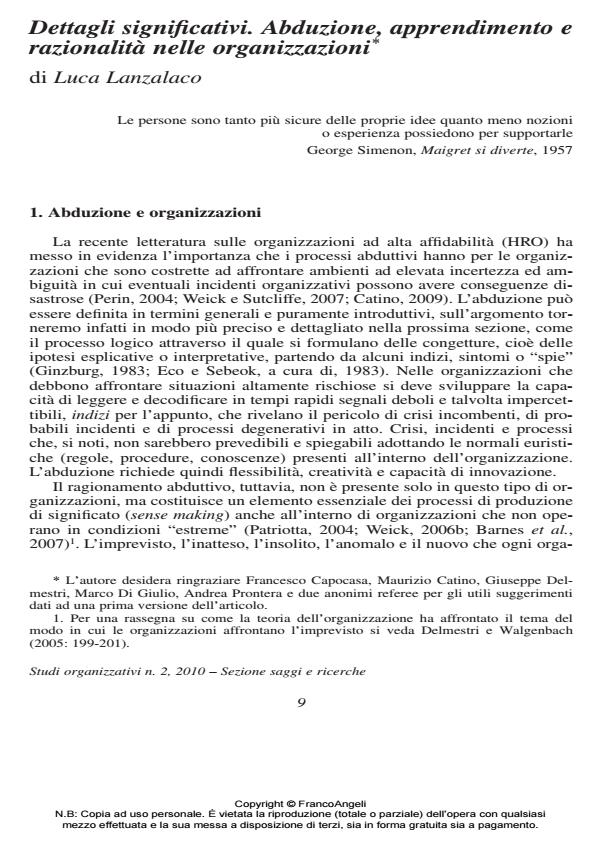Meaningful details. Abduction, Learning, and Rationality in Organizations
Journal title STUDI ORGANIZZATIVI
Author/s Luca Lanzalaco
Publishing Year 2011 Issue 2010/2
Language Italian Pages 33 P. 9-41 File size 838 KB
DOI 10.3280/SO2010-002001
DOI is like a bar code for intellectual property: to have more infomation
click here

FrancoAngeli is member of Publishers International Linking Association, Inc (PILA), a not-for-profit association which run the CrossRef service enabling links to and from online scholarly content.
Abduction is a form of logical inference which, even if less known than deduction and induction, is relevant as process as them. By means of abduction a signal or clue is deciphered by means of a new rule. Abduction is based on conjectures or hypotheses and is the basis of scientific and clinic reasoning. The aim of the article is to shown the importance of abductive processes not only for HRO, but in general for the analysis of all the organizations operating in contexts characterized by radical or genuine uncertainty. Four forms of abduction are distinguished on the basis of their increasing creative content: rule linking, rule selecting, rule seeking and rule generating. The article shows that a contradiction exists between the imperative of semantic (or substantive) rationality which, in front of new signals, leads organizations to explore new strategies and those of syntactic (or formal) rationality which is much prone to react to clues by means of cognitive precaution and behavioral rigidities. Then, article analyzes the implications of this dilemma for organization design in social, economic and technological environments becoming more and more uncertain.
- La presa in carico della cronicità in Lombardia tra contabilità mentale, architettura della scelta e decisioni di policy Giuseppe Belleri, in MECOSAN 111/2020 pp.35
DOI: 10.3280/MESA2019-111003
Luca Lanzalaco, Dettagli significativi. Abduzione, apprendimento e razionalità nelle organizzazioni in "STUDI ORGANIZZATIVI " 2/2010, pp 9-41, DOI: 10.3280/SO2010-002001